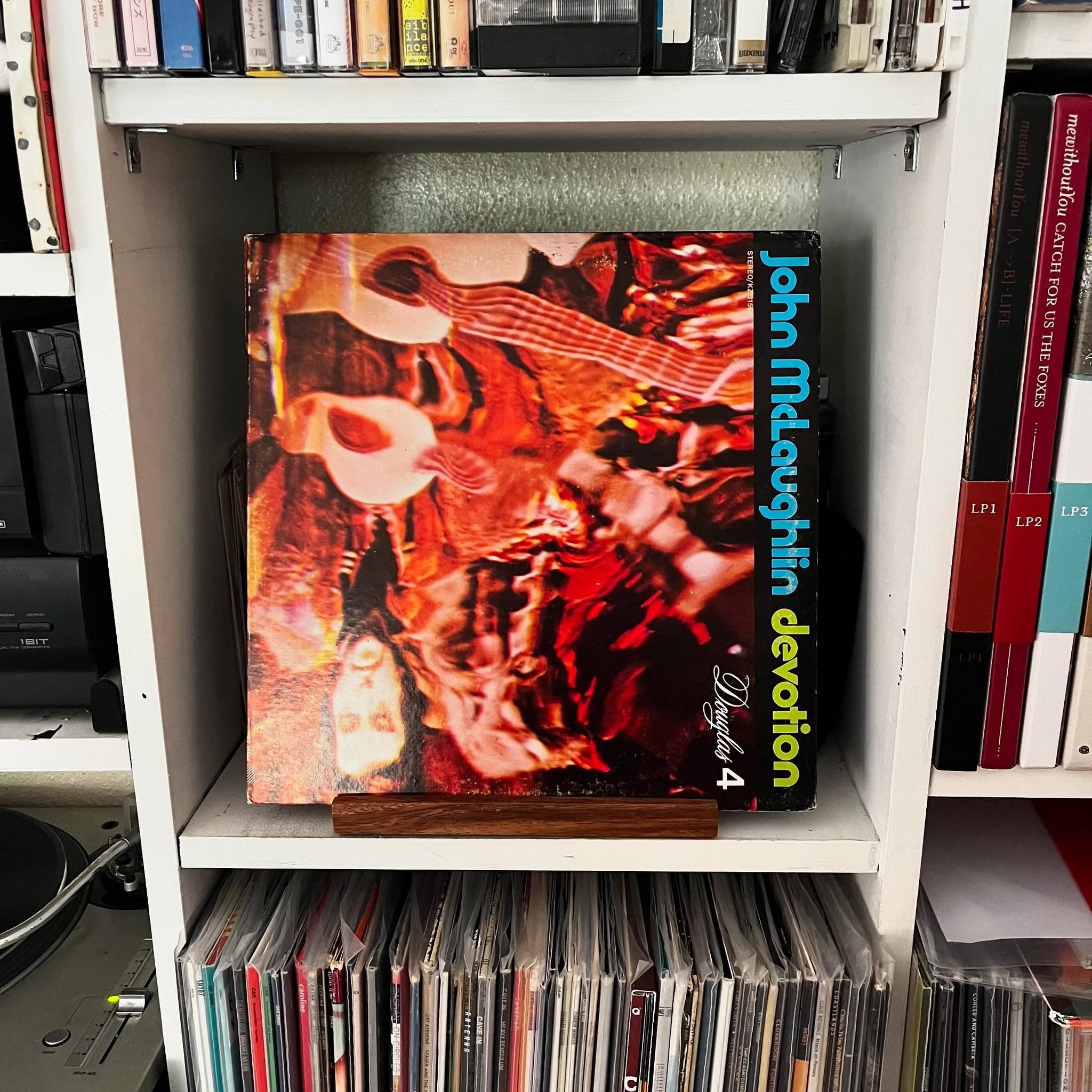
A lot happened in the year between John McLaughlin’s first album as band leader and his second. Extrapolation was recorded in the UK right before moving to the States to join Tony Williams’ Lifetime. By the time Devotion was recorded, he had also recorded three groundbreaking records with Miles Davis, served as a sideman for Larry Coryell, and had a single all-night jam session with Jimi Hendrix.
That’s a lot to fit in a calendar year, and this disc carries the full weight of it.
I am incredibly picky with my jazz fusion. It started off promising enough, with the wildest elements of jazz, psychedelia, and hard rock combining into a massive beast. It’s not an accident that my jazz collection primary features Davis’ electric period and the records his sidemen (e.g., Joe Zawinul, Chic Corea, Herbie Hancock) did at the same time. But around the middle of the 1970s, fusion at large seemed to have just become an iridescent coat of paint over funk. As much as I love the earliest Mahavishnu Orchestra, Weather Report, and Return to Forever records, even those powerhouses got boring to me as their catalogs continue.
But Devotion finds John McLaughlin right in the eye of the fusion storm at its most fierce. He had just recorded Bitches Brew and Jack Johnson with Miles, and wasn’t quite ready to move on from that sort of thing. With this quintet free of any horn players though, there is an energy here that conjures the wildest moments of Led Zeppelin and King Crimson.
McLaughlin’s guitar is pure fire, constantly overdriven and making use of new technology like echo machines and wah pedals. He is a definite virtuoso, but more impressive than his technical chops is his sense of melody. Even his most challenging riffs are tuneful and enjoyable.
Just as impressive is his direction of the band. Lifetime keyboardist Larry Young makes excellent use of a Hammond organ and electric piano to give atmosphere while Hendrix sidemen Billy Rich and Buddy Miles offer an impressive rhythm section.
While this record is the exact showing of Miles-era McLaughlin that I love, he doesn’t seem to give this record the credit its due. On his website, his statement for this record read, “In 1969, I signed a contract in America for two records. First is ‘Devotion’ that is destroyed by producer Alan Douglas who mixes the recording in my absence.” Whatever disappointment he might have in the production seems to be an isolated feeling, as this is one of the better fusion records I’ve heard. It perfectly bridges the gap between rock and roll’s furious energy and jazz’s freedom, and no one can guard that bridge quite like John McLaughlin.